The third edition of the Amsterdam Polish Film Festival, held at De Balie from October 18-20, 2024, was a tribute to the remarkable Polish film director Agnieszka Holland. With three Oscar nominations to her name, Holland’s films confront difficult truths about humanity while deeply moving and engaging audiences. The festival’s theme, Focus on Humanity, captured the essence of her work. Each film screening sparked lively discussions, both during the official Q&A sessions and among attendees, about the films’ powerful messages and their relevance to our world today.

Program
Friday, October 18, 2024
17.30 – 19.00
The Lonely Woman (1981, 90 min.)
20.00 – 20.30
Conversation: Through the lens of time – the fever of the 1980s in Poland
Moderator: Stefan Malesević
Guest: Barbara Malak – Minkiewicz
20.30 – 22.30
Fever (1980, 111 min.)
Saturday, October 19, 2024
16.00 – 18.30
Green border (2023, 147 min.)
20.00 – 20.40
Live interview (via Zoom) with A. Holland:
The many faces of A. Holland
Moderator: Ianthe Mosselman
20.40 – 21.20
Conversation: How migration really works?
Guests: Agnieszka Holland, prof. Hein de Haas
and Joely Mbundu
Sunday, October 20, 2024
15.00 – 17.30
In Darkness (2011, 145 min.)
19.30 – 20.00
Conversation: Humanity within us – facing challenging choices
Moderator: Dore van Duivenbode
Guest: Bibi Dumon Tak
20.00 – 22.10
Spoor (2017, 128 min.)
Day 1
Film: A Lonely Woman
Irena Misiak is a middle-aged single mother, and life has not been kind to her at all. Uneducated and impoverished, she lives with her son in a cramped, dirty social accommodation. She works long hours but still cannot make ends meet, and her son gets bullied at school.
The only happy moments she finds are these spent with Boguś, a young, handicapped pensioner, with whom she starts a relationship. Although they both need each other, it is clear from the beginning that their story cannot end well.
Produced in 1981, the film had to wait six years for its premiere as the censorship found it too critical about Polish social and political system at that time. Indeed, it paints a very bitter, depressing and complex picture of life in Poland in 1980s. In 2019 The Observer included A Lonely Woman in a list of 25 films defining European cinematography.
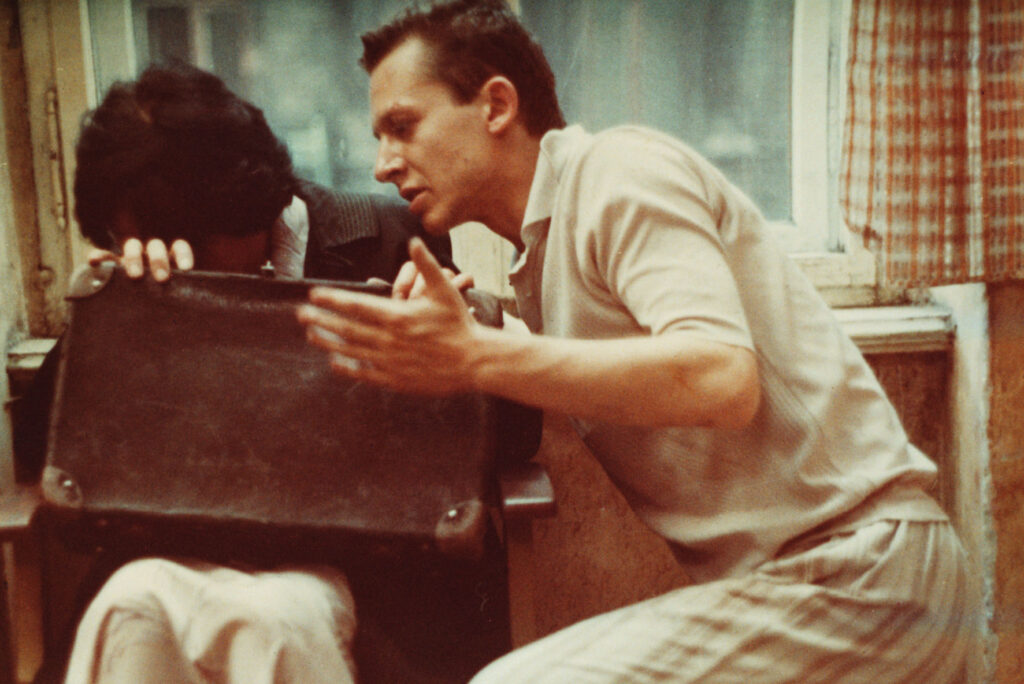
Conversation: Through the lens of time - the fever of the 1980’s in Poland
The 1980s, a lost decade, were a tumultuous time in Poland, marked by political unrest and economic struggles. It is remembered as gloomy, depressive, with hardly any hopes for a better future. What was it like to live through it? Towards the end of 1980s the communist rule turned out to be a complete bankrupt, both economically and morally. Poland reached for its independence once more in 1989, this time successfully, giving an impulse to the fall of the whole Soviet bloc.
Moderator: Stefan Malešević
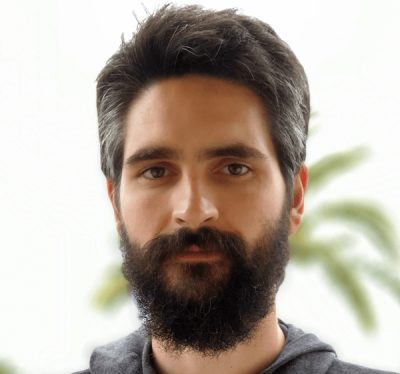
Stefan Malešević is a filmmaker and film curator from Serbia, currently living in the Netherlands. He studied filmmaking at the film.factory academy in Sarajevo, Bosnia, under the mentorship of Béla Tarr. His documentary film Gora (2016) was awarded at Beldocs and DokuFest and screened at Visions du Réel. His first fiction feature film Mamonga (2019) premiered in Karlovy Vary, screened at New Horizons in Wrocław, Marrakech International Film Festival and several other festivals. He is a member of the European Film Academy since 2019 and works as the Head of Cinema in the cultural centre De Balie, Amsterdam.
Guest: Barbara Malak-Minkiewicz
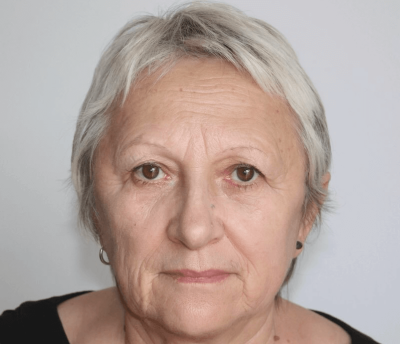
Barbara Malak – Minkiewicz is a social sciences and philosophy scholar with a PhD from the University of Warsaw. Involved in an anti-communist opposition in 1980s. After the collapse of communism, she focused on the transformation of education in Central European countries. After brief service as the spokesperson of “Solidarność” trade union in Gdansk (1990-1991), she engaged in several projects in post-soviet bloc countries.
In 1998-2014 worked as the manager of membership relations at the International Association for the Evaluation of Educational Achievement in Amsterdam. For her work for freedom in Poland she was awarded by Polish President in 2013 Officer’s Cross of Polonia Restituta.
Film: Fever
Does the Revolution always devours its children? Agnieszka Holland’s film depicts the events of 1905 Revolution in the Kingdom of Poland through the fate of four protagonists and provokes many questions. Does a noble idea retain its nobility even if brutal violence or a crime is used to realize it? Are the followers of these lofty ideas simply naive people and victims of manipulation?
In 1981, a few months after its premiere, the censors blacklisted Fever from further screenings. They were concerned with the negative portrayal of the Russian authorities, as well as with morally ambiguous inception of the revolutionary movement at the dawn of the 20th century.
In retrospect, the film turned out to be prophetic, touching not only on the totalitarianisms of the 20th century, but on all forms of terrorism. It accurately portrays the dynamics of social movements, their dark side and susceptibility to manipulation.
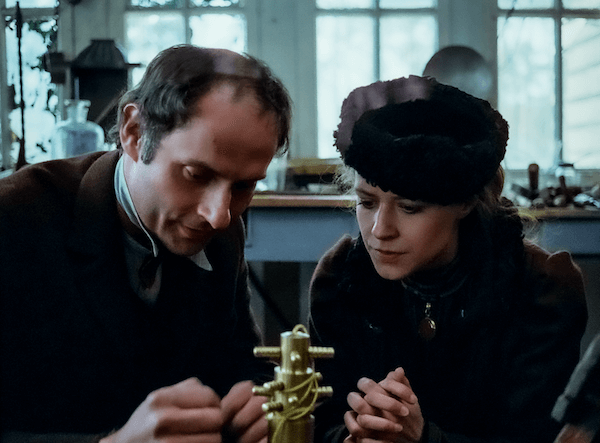
Day 2
Film: Green border
The borderland between Poland and Belarus is forest and swamps. Until a few years ago the area attracted visitors with its unspoiled, wild nature. But since 2021 it had become a trap for thousands of people from Asia, Africa and the Middle East who desperately try to cross EU borders in search of safety and a better life.
Agnieszka Holland’s latest film (2023) puts the humanitarian crisis on Polish-Belarussian border in the spotlight, exploring the perspectives and dilemmas of the migrants, Border Guards, activists providing help, and border area residents.
Green Border was awarded the Special Jury Prize at the 80th Venice International Film Festival last year for both artistic qualities and in recognition for being an important voice in the global debate on one of the most divisive issues of our times – migration.
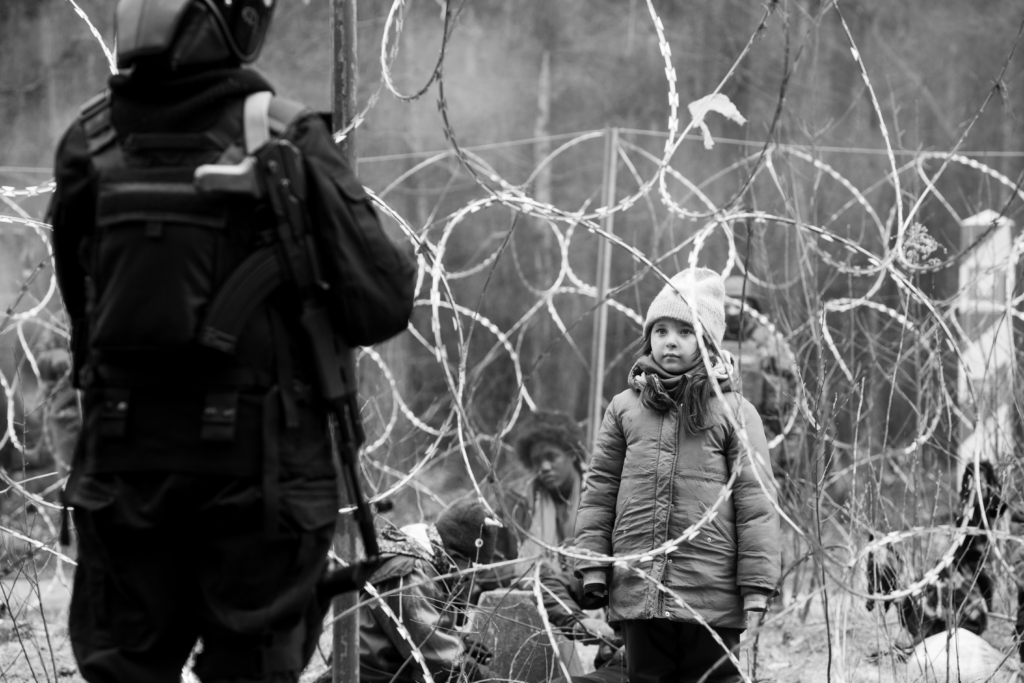
Live interview: The many faces of Agnieszka Holland
Honored Guest: Agnieszka Holland
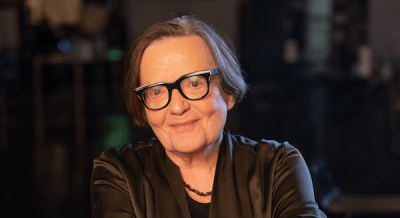
Agnieszka Holland (1948) is a renowned Polish film director and screenwriter known for her contributions to world cinema. Holland’s journey in filmmaking began with studies at the prestigious FAMU in Prague, where she honed her craft and was exposed to the New Wave cinema movement. Over the years, she worked her way up in the film industry, initially as an assistant director and screenwriter in Poland, before achieving international acclaim. Her films, often delve into complex historical and political themes, offering profound insights into the human condition. She has successfully combined European and Hollywood filmmaking, as well as television. Holland’s work has garnered numerous awards, including Oscar nominations, showcasing her ability to create emotionally resonant and socially relevant cinema.
Interviewer: Ianthe Mosselman
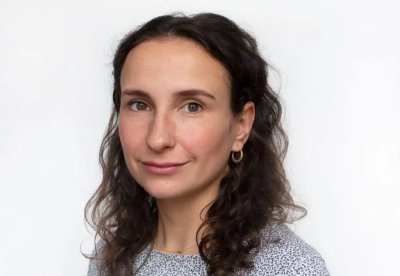
Ianthe Mosselman is the Senior editor and Program Maker Art, Literature, at De Balie. She studied Comparative Dutch Studies in Amsterdam and Berlin. She creates programs about art, literature, and culture, and over the past few years, she has interviewed various national and international writers on the stage of De Balie. She has also worked for the European Press Prize.
She believes that art doesn’t need to serve a purpose, that conversations should be challenging, and that there should be more space for women in public debate. Additionally, she thinks that we should cherish beautiful things, which is why she has been organizing the Conversation Before the Dam and programs about forgotten literary works for years.
Conversation: How migration really works?
Guest: prof. Hein de Haas
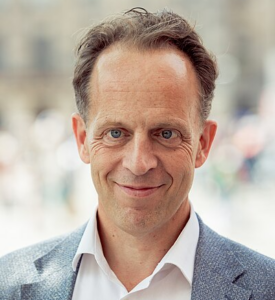
Hein de Haas is a sociologist and a geographer who has lived and worked in the Netherlands, Morocco and the United Kingdom. He is currently Professor of Sociology at the Amsterdam Institute for Social Science Research, part of the University of Amsterdam. Between 2006 and 2015, he was a founding member and co-director of the International Migration Institute at the University of Oxford. He continues directing IMI from its current home at UvA. He is also Professor of Migration and Development at the University of Maastricht.
In his work, de Haas has advanced a new, long-term view of migration as an intrinsic part of global change and development. He is a lead author of The Age of Migration: International Population Movements in the Modern World, a seminal text book in the field of migration studies. His new book How Migration Really Works: A Factful Guide to the Most Divisive Issue in Politics was published in 2023, as well as in German, Dutch, French, Spanish, Italian, Portuguese, Greek and Korean translations. He maintains a blog on migration-related topics.
Guest: Joely Mbundu
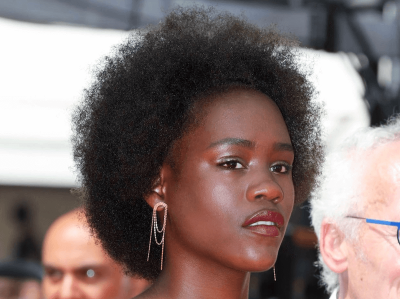
Joely Mbundu was born in Villeneuve-St-Georges, France and attended school in Flanders, Belgium. Her first role, at the age of 16, was the critically acclaimed lead Lokita in the 2022 film by the Dardenne Brothers, Tori and Lokita. The film premiered in Competition at the Cannes Film Festival and went on to win a special prize in honor of Cannes’ 75th Anniversary. It also garnered awards at the Jerusalem and The San Sebastián Festival and was honored with the Grand Audience Award at The Seville European Film Festival. Most recently, Joely was featured in Agnieszka Holland’s 2023 film, Green Border, which won a Special Jury Award at The Venice Film Festival where it received a 15 minute standing ovation and also screened at the Toronto and New York Film Festivals while garnering rave reviews from Variety, The Hollywood Reporter, Deadline, The New York Times, The Washington Post and other publications.
Joely speaks French, English, and Flemish fluently. She sings and has been involved in various forms of dance for many years – including classic, hip hop and jazz.
Day 3
Film: In Darkness
What is it like to spend 14 months in the darkness of city sewers, knowing that leaving the place means almost certain death? Leopold Socha, an ambiguous character, sometimes referred to as Polish Schindler, was a sewer worker in Lviv during the nazi occupation. Initially for profit, he took the risk to help and hide a group of Jews escaping the liquidation of Lviv ghetto, eventually saving their lives.
Nominated for an Oscar in 2011, the film is based on the book The Girl in the Green Sweater, the memories of the last sewer survivor, Krystyna Chimer. The story challenges national and racial stereotypes showing how extreme situations prompt one to reveal unknown and unexpected aspects of one’s conscience.
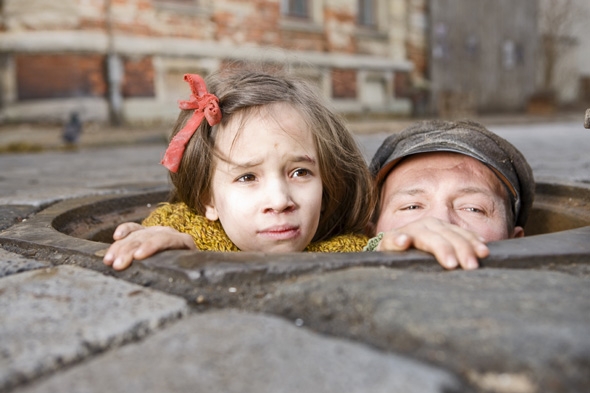
Conversation: Humanity within us - facing challenging choices
Is compassion an integral part of human nature or is it experienced only by some of us? Is it a gift or can it be learnt? And why some humans think that we are entitled to rule the realm of nature?
Moderator: Dore van Duivenbode
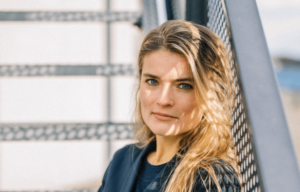
Photo: Mark Haers
Dore van Duivenbode is a writer and journalist of Polish-Dutch descent. She studied History at Utrecht University and made her debut with the book My Polish House (Uitgeverij De Geus, 2019) about her youth in Oswiecim (Auschwitz), the city where her mother was born. My Polish House won the Bob den Uyl Prize for the best journalistic travel book of 2019. This year, her second book Oerbos (Uitgeverij De Geus, 2024) has been published, about the battle for European nature.
Dore was also seen in Moja Polska!, the 5-part VPRO documentary series through Poland and in the online series about sustainability Dus Wat Gaan Wij Doen? for KRO-NCRV and the journalistic VPRO series Gazeta, the Polish newspaper under fire about press freedom. She has made radio documentaries for the VPRO and is a much sought-after speaker on radio and television programs.
Guest: Bibi Dumon Tak
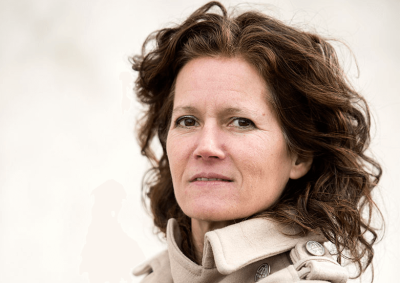
Bibi Dumon Tak writes non-fiction, or as she calls it herself: the truth in stories. All the stories are true stories and most of them are about animals. The stories are about cows that have escaped from slaughter, animals that help people in wartime, birds, animals that live in the polar regions, unattractive animals, cloven-hoofed animals, and animals in cities. She has no preferences, as long as it can crawl, fly, swim or run, as long as it has fur, scales, spines or feathers, as long as it is not human.
She has now written more than 15 books. In 2006, Bibi Dumon Tak wrote the children’s book week gift Laika among the stars which is about animals that help people. In 2012, after four Silver Griffels, she won a Golden Griffel for Winter Animals. She has also written a book with a Polish theme, Soldier Bear – about one of the most extraordinary soldiers of World War II.
Film: Spoor
Strange events began to take place in a small village, somewhere in the mountains, nearby Polish Czech border. A few men, all of them passionate hunters and members of local establishment, got killed in very unclear circumstances. Surprising clues to solve these mystery murders are found by Janina Duszejko, a lonesome, ignored woman in her 50s. She is a great admirer of Wiliam Blake’s poetry and astrology but most of all, she loves animals.
Spoor is an adaptation of a novel by Olga Tokarczuk Drive Your Plough Over the Bones of the Dead (2009). Both Holland and Tokarczuk say that it was not their intention to create a political film. However, with the plot exploring the issues of authoritarian patriarchy, animal rights and questioning the superior position of humans over other species, the audience worldwide received it as an ecological thriller with a feminist twist.
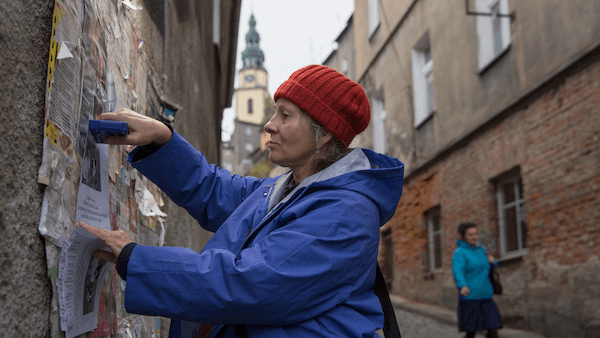
Festival Partners and Sponsors
Amsterdam Polish Film Festival is organized by Polish Culture NL in cooperation with De Balie and co-sponsored by AFK.



